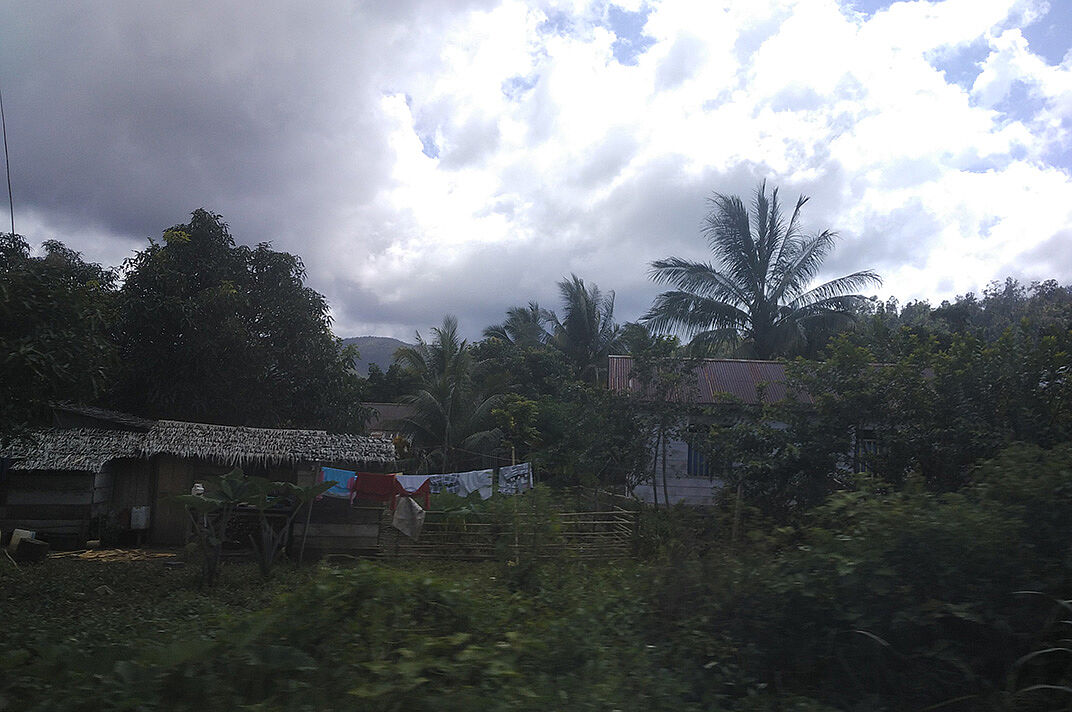Evangelische Bank eG
IBAN: DE85 5206 0410 0000 0001 24
BIC: GENODEF1EK1
Indonesia: Helping the Tugutil
The Tugutil tribe lives in the forests of Halmahera. Multinational corporations are mining there, destroying the natural environment and thus the Tugutil's livelihood. The Evangelical Christian Church in Halmahera (GMIH) has good contacts to the Tugutil and wants to support them maintain their way of life.
The Tugutil tribe has a population of about 1,500 to 3,000 people. It lives a traditional, natural life in the forests of the eastern and central regencies of Halmahera, Indonesia. At the same time, multinational companies are mining for nickel and gold in this region. Mining has a devastating impact on the natural environment by clearing whole forests and polluting the rivers. Mining endangers the livelihoods, identity and future of the Tugutil, who live off the natural products of the forest. The Evangelical Christian Church in Halmahera (GMIH) maintains good contacts with the tribal people. The church is supporting and empowering the marginalised Tugutil group and, together with the tribal people, is ensuring that the tribe can continue to maintain its culture and way of life in the future.
Comprehensive and integrative support
The GMIH is training members of the Tugutil tribe in sustainable, organic farming. It shows the Tugutil how they can stay true to their roots with handicrafts and finance their lives more independently of nature. It offers legal advice and supports the tribal people in their negotiations with the mining companies and the government. It supports infrastructure measures such as building roads, prospecting for drinking water sources and setting up a basic healthcare system. Cultural festivals and language courses help to preserve and develop their own culture. All these measures are tailored precisely to their needs in dialogue with the Tugutil. This is because the Christian Evangelical Church in Halmahera is committed to supporting the Tugutil to live their own way of life, with their own culture and their own spirituality.
Indonesia
Thirty per cent of Halmahera's forest has already been destroyed for mining.

Sustainable and forward-looking
The project is initially planned for two years and the Tugutil are involved from start to finish. To ensure that the work will continue after the project ends, members of the tribe are being trained using the train-the-trainer model to become specialists so that they can continue the project independently. In addition, the church is organising a broad support network consisting of NGOs and government organisations.
The Evangelical Christian Church in Halmahera regards itself as having a moral and social responsibility to help people in need and is guided in its commitment to marginalised groups through the principles of justice, peace and environmental integrity.
Your donation will make this valuable work possible and help ensure the preservation of a natural habitat and that the people of the Tugutil tribe can continue to live in harmony with nature in the future.
The GMIH intends to work towards creating the conditions that will enable the Tugutil to continue to live in harmony with nature in the future. Nature should be protected from overexploitation and pollution by large corporations and should continue to be preserved as a living space for the Tugutil. The GMIH wants to encourage the Tugutil to remain true to their culture and traditions.
The GMIH is training members of the tribe in sustainable and organic farming and is opening up arts and crafts as an alternative source of income for them. It offers legal advice and supports the tribal people in their negotiations with companies and governments. It supports the Tugutil with infrastructure measures such as road building, prospecting for sources of drinking water and setting up a basic healthcare system. The GMIH also supports the organisation of festivals that present, honour and preserve the culture, language and spirituality of the Tugutil.
The fragility of the Indonesian state is evident in the Moluccas. The archipelago between Sulawesi and New Guinea has long been considered a prime example of religious tolerance and peaceful coexistence. However, this system collapsed in 1999. Ethnic and religious conflicts broke out. By the year 2002, thousands of people had fled to escape from the violence. The Evangelical Christian Church in Halmahera (GMIH), which has been run as an independent church since 1949, is the largest on the Moluccan island and as a result, was faced with a serious struggle for survival. Since then, the church has undertaken extensive development work and many communities are once again thriving. The church has 150,000 members in 157 congregations.
We are pleased to hear that you are interested in this project. If you have any general questions, please use the contact form below. We are also happy to help you personally if you have any questions or require further information – by phone or by E-mail.
Djoko P. A. Wibowo
Liaison Secretary Indonesia
+49 711 636 78 -36